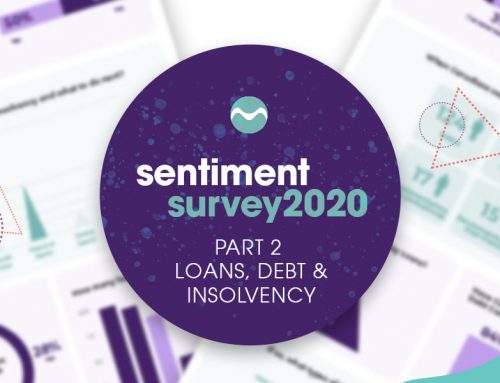Whether you’re applying for a personal loan, a line of credit, a mortgage, or even a business loan, your personal credit score is one of the most critical factors in determining your creditworthiness. It is a three-digit number that ranges between 300 and 900 that allows lenders to evaluate your ability to repay debt. Banks and other traditional financial institutions particularly rely on credit scores when assessing a loan applicant. As such, many Canadians who struggle with obtaining credit due to bad credit depend on alternative lenders.
Alternative Lenders and Bad Credit
Alternative lenders typically serve those who are seen as high-risk borrowers to banks and other traditional financial institutions. They provide these borrowers access to different credit products including personal loans, car loans, mortgages, lines of credit, and more. These lenders often operate online and have an easy and fast underwriting policy. However, it is important to note that while convenient, these lenders do charge higher interest as a result.
Factors Alternative Lenders Consider Other Than Your Credit Score
Unlike banks, alternative lenders don’t rely completely on your credit score. Instead, they measure your ability to repay the debt through many different financial factors. In addition to your credit score, alternative lenders will consider income, assets, monthly debt payments, other monthly expenses, and a variety of other factors that contribute to your overall financial health.
Income
Your level of income helps lenders assess how much of a loan you can afford. In general, the higher your income, the larger loan you’ll be able to qualify for. Most lenders will require you to provide your pay stubs or bank statements in order to verify your income level.
Debt Level
In conjunction with your income, your level of debt will also be considered. In other words, your debt-to-income ratio will be evaluated. Your debt-to-income ratio is calculated by adding all your monthly debt payments divided by your gross monthly income (income before taxes and other deductions). The ratio provided through this formula allows lenders to measure how much additional debt you can afford.
In general, lenders prefer your debt-to-income ratio to be less than 36% (however, some lenders go as high as 43%), with mortgages contributing to no more than 28% of it. To put things into perspective, if you have a gross monthly income of $3,500, your mortgage payments should not be more than $980 (28% of $3,500) and your total monthly debts should not exceed $1,260 – $1,505 (36% – 43%). Meaning, after your mortgage you have $280 – $525 of your income to contribute to your other debt.
Employment Stability
Your employment history also plays a part in your approval, especially, for long-term loans like mortgages. A steady employment history informs your lender that you have a regular source of income to repay your debts. Lenders often ask for pay stubs and bank statements to review your income stability.
Down Payment
If you’re applying for a car loan or mortgage, the amount you put down can not only increase your chances of approval but you’ll be able to lock in a lower rate. This is due to the security a down payment provides to the lender.
Down Payment on a Car – In the event you are unable to pay back your car loan, the lender will seize your vehicle in an attempt to recoup the money owed. However, cars depreciate fairly quickly, in order to avoid taking back a car that is worth less than what is owed, a down payment is required. Basically, a down payment helps bridge the gap between the car sale price and its depreciated value.
Down Payment on a Mortgage – Similarly, mortgage lenders also require down payments to reduce the risk they have when providing loans. By putting down a down payment lenders know you’ll be less likely to default as you’ve invested your own money. Moreover, if they have to foreclose the property, they can limit their losses if they are unable to sell the house for the remaining mortgage balance.
As such, the higher your down payment, the less risk your lender takes, which leads to higher approvals and lower rates.
Collateral
Another factor lenders will consider when assessing a borrower is the collateral they provide. This includes investments, real estate, vehicles, and any other financial asset you own. By securing your loan with these assets, you greatly reduce the risk your lender takes. That is, if you default on your loan, your lender can seize the collateral as payment. Due to the security it provides, your chances of approval and your ability to lock in a lower rate increase.
Loan Details
While this has nothing to do with your personal financial health, the loan amount and term you ask for will be taken into consideration. Sometimes, lenders won’t grant you the loan amount you ask for. For example, if you ask for a loan of $5,000, they may only approve you for $2,000.
Bottom Line
If you have a bad credit score or are considered a high-risk borrower, obtaining a loan through a bank can be difficult. However, thanks to alternative lenders, borrowers with poor credit can still gain access to different credit products that would otherwise be out of reach. While interest rates may be higher with alternative lenders, their flexible lending standards and quick approval and funding process, make it well worth it.
Written by Caitlin from Loans Canada | Contributor Writer for Marble Financial






